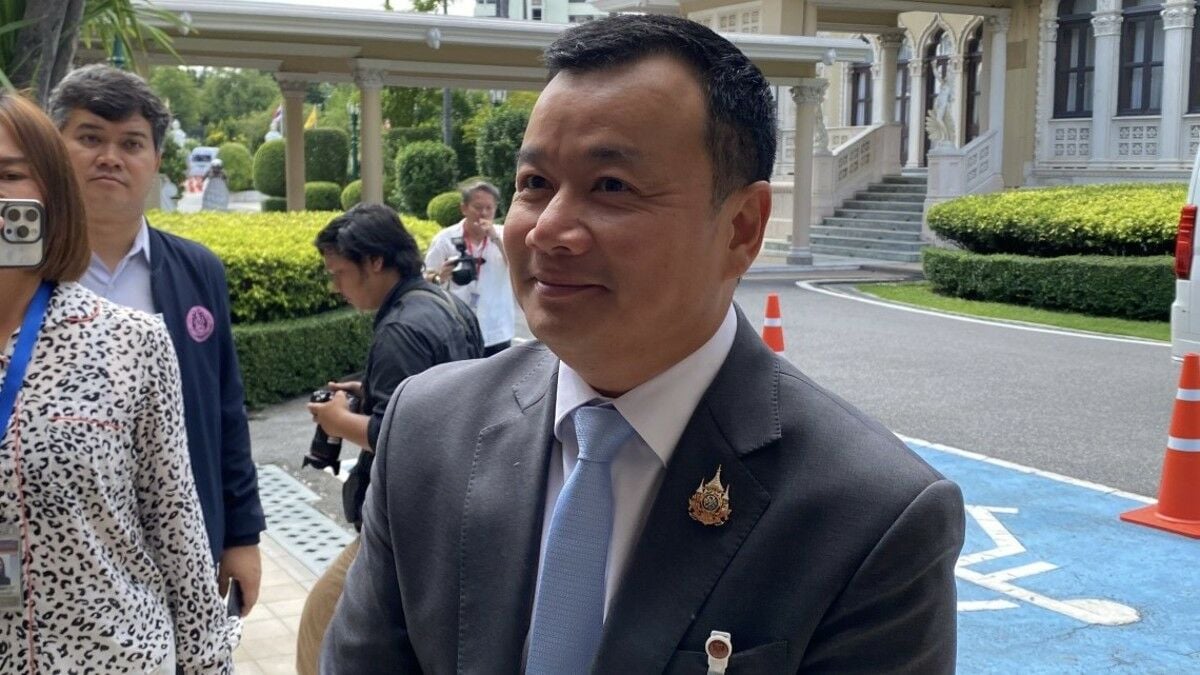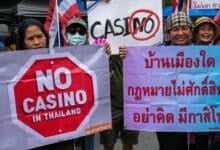Thailand set to advance casino project with 80% public approval

Newly-appointed Deputy Finance Minister Julaphan Amornvivat recently discussed the progress of the Entertainment Complex (Casino) project following the completion of public hearings, where over 80% of respondents expressed approval.
This project, which has its origins in Parliament, is now set to move towards discussions among coalition parties before being submitted to the Cabinet and Parliament for further consideration.
Julaphan highlighted the strengths of the new economic team. Deputy Prime Minister and Finance Minister Pichai Chunhavajira brings expertise in capital markets and the private sector, while Deputy Finance Minister Paopoom Rojanasakul offers academic insights. Several economic initiatives are also progressing, including the digital wallet scheme, the establishment of a financial hub, and the Vayupak Fund.
“Our economic team is well-rounded, combining practical experience with academic knowledge to drive our initiatives forward.”
In addition to the Entertainment Complex, Julaphan emphasised the public’s support during the hearings. With over 80% approval, the project is poised to advance through the legislative process.
Meanwhile, newly-appointed Thai Tourism and Sports Minister Sorawong Thienthong addressed the future of tourism policies. Sorawong credited former Prime Minister Srettha Thavisin for laying a solid foundation in tourism and aims to build upon these efforts.
Key focuses include continuing visa-free agreements and promoting domestic tourism to bolster the local economy, reported Pattaya News.
“We intend to maintain the momentum in tourism by extending visa-free agreements and encouraging local travel, which will significantly benefit our economy.”
ORIGINAL STORY: High stakes in Thailand: Rolling the dice on casino legalisation
Thailand is moving forward with plans to legalise casinos within entertainment complexes.
The Finance Ministry has completed a draft of the Entertainment Complex Act, which will soon be subjected to a public hearing in accordance with Section 77 of the constitution. This hearing aims to incorporate public feedback before the bill is presented to the Cabinet for further consideration.
Deputy Prime Minister and Commerce Minister Phumtham Wechayachai confirmed that coalition party leaders and representatives will meet at Government House today to discuss various topics, including the entertainment complex bill. This proposed legislation seeks to legalise casinos and set regulations for the gambling industry.
The bill highlights the potential benefits of establishing entertainment complexes, citing the tourism industry’s significant contributions to the national economy. The document argues that the entertainment industry could further boost tourist spending.
“Promoting and regulating integrated entertainment complexes that meet standard requirements is an important measure to encourage domestic investment, which in turn will benefit the country and help support sustainable tourism,” reads an excerpt from the bill.
According to the bill’s 65 sections, an entertainment complex must secure a licence to operate, valid for up to 30 years. The operator is required to pay a registration fee of 5 billion baht and an annual fee of 1 billion baht.
Entrance fee
The complex will undergo an assessment every five years. After the initial 30-year period, the licence can be renewed for another 10 years.
The legislation also stipulates that individuals under the age of 20 are prohibited from entering these venues. While the complexes are open to all foreigners, Thai citizens must pay an entrance fee of 5,000 baht.
A policy board chaired by the prime minister will be established to set the rules and regulations governing these gaming complexes.
Chai noted that the project could significantly impact the economy. In 2022, the global business value of casino-based entertainment complexes reached US$1.5 trillion (53 trillion baht), with projections estimating an increase to US$2.2 trillion by 2028.
“Entertainment complexes generate huge income for many countries each year.”
Chai added that Macau, with a population of just 690,000, earns up to US$32 billion from its casino-based entertainment complex business. Las Vegas follows with US$30 billion, and Singapore with US$12 billion.
Global revenue
With Japan planning three similar projects, Thailand needs to accelerate its efforts to capture a share of the global revenue, he added.
Chai also cited a House committee report on the entertainment complex scheme, which estimated that the project could generate at least 12 billion baht in taxes for Thailand in its first year.
The House committee’s study focused on three aspects: the economic, social, educational, and cultural implications of having such a venue in Thailand; the business structure and revenue collection; and the legality and criteria for laws regarding entertainment and gambling regulations.
Five locations are being considered as potential hosts for this project: two in Bangkok and one each in the Eastern Economic Corridor, Chiang Mai, and Phuket, reported Bangkok Post.
However, Pariyes Angkurakitti, a spokesperson for the opposition Thai Sang Thai Party, criticised the project. He expressed concerns that lax law enforcement could impede efforts to regulate the casino industry effectively.
Latest Thailand News
Follow The Thaiger on Google News:


























